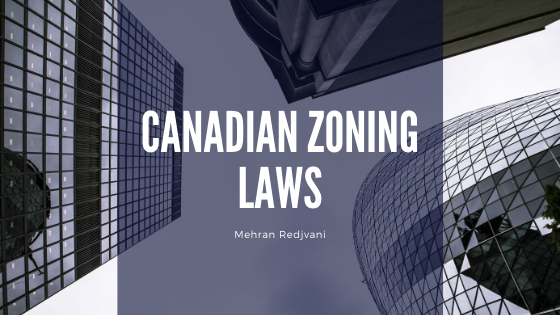Zoning laws determine what kinds of properties can be built on a particular plot of land. In considering existing features such as buildings, landmasses, and railways among others, zoning laws exist to protect industries, eliminate adjacent incompatible land uses, and control how intensely a given area of land is used. More recently, there has been a trend towards commercially-zoned properties, in particular retail properties, being developed into high density housing. This is likely the result of a challenging retail environment due to buyer preferences shifting towards online shopping, combined with a shortage of supply of residential homes.
Zone Types
Land can be used in many different ways depending on the surrounding natural or man-made features as well as the ground itself. The three most common zones are commercial, industrial, and residential. Beyond these are forest, agriculture, parks, and highways. Each zone serves a function in society, and each has individual limits. For example, a residential zone will be limited to buildings that are designed to house individuals, but it will be restricted to how many units can be contained within the structure.
Zoning Bylaws
Within communities, zoning bylaws exist on a small scale to ensure proper usage of local land. Zoning bylaws include written records of what kinds of buildings or structures can be built and where. Municipalities with zoning bylaws are able to legally enforce land use restrictions and prevent dangerous uses of land in the community.
When zoning bylaws are considered, a number of factors are evaluated including flood risks, essential utilities like vehicular access, and the actual dimensions of the available land.
Zoning Changes
For land developers, requesting a zoning change or rezoning may be appealing if the existing zone does not suit your plans. Before submitting an application for a rezoning, it is advised that you seek out the advice of your municipal planning staff to validate whether your request will feasibly be granted.
Incentive Zoning
In some urban regions, incentive zoning is offered in which landowners and developers are encouraged to include certain features in exchange for rewards. These features tend to add aesthetic value and functionality to both the existing building and the community at large. At times, traditional zoning laws have been criticized for being inflexible, so practices like incentive zoning demonstrate a willingness to appeal to such critics.
As a whole, Canadian zoning laws exist to make the most of the space available in a way that best suits the needs of local communities.
Mehran Redjvani is a realtor located in the Toronto suburbs. For more information, please contact him at (647) 206-8564.

